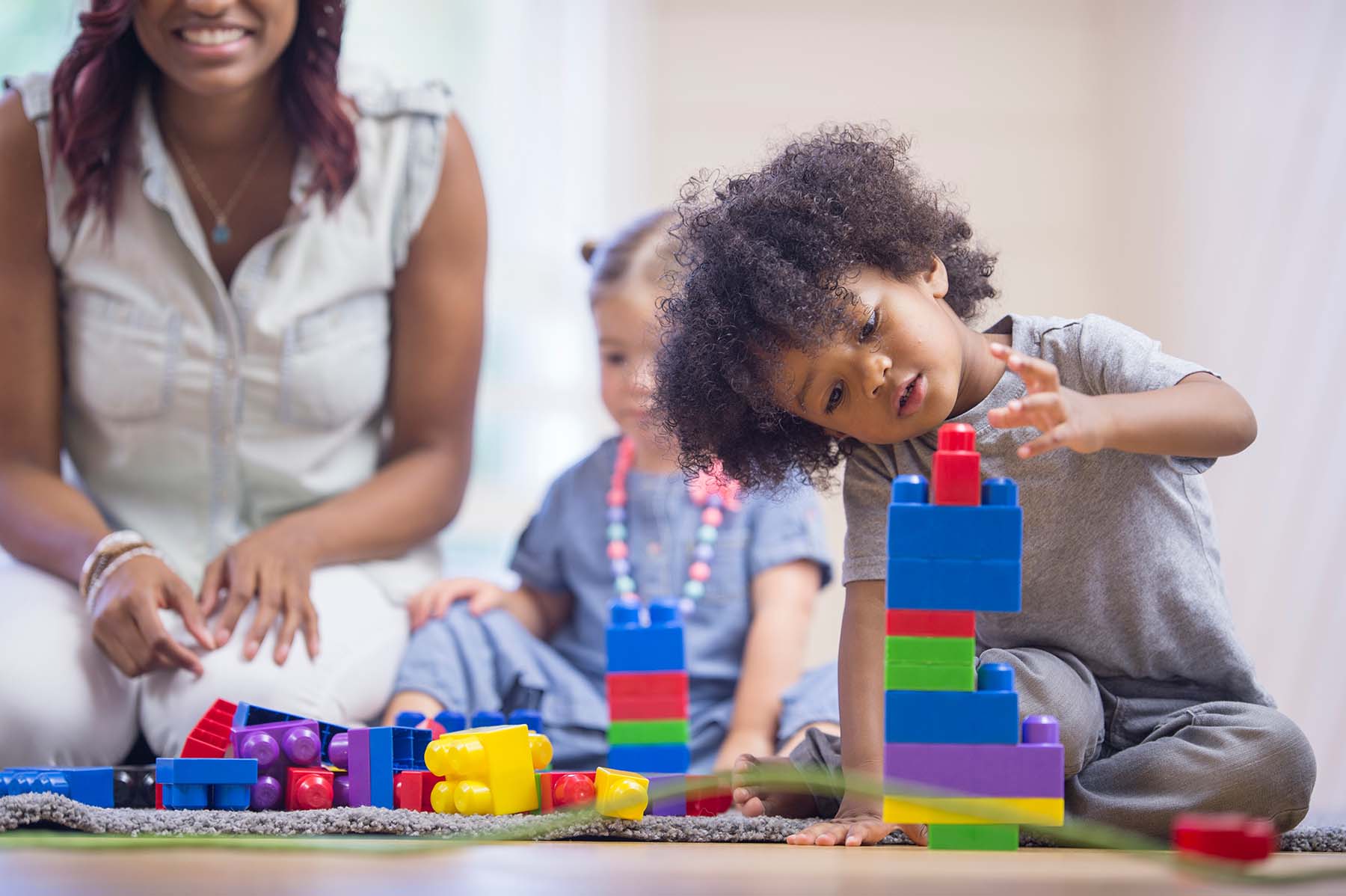How Toys Can Help Kids with Developmental Delays

Playtime and toys are tools of the trade for Abigail Peskin, Ph.D., and Alina Farias, PsyD.
Dr. Peskin and Dr. Farias are child psychologists in the Parent Child Interaction Therapy (PCIT) Program at the Mailman Center for Child Development (MCCD). MCCD is part of the University of Miami Health System.
“Play is how kids learn about the world around them, and every toy serves multiple purposes in developing social, emotional, language, and motor skills,” Dr. Farias says.
By guiding play between children and parents, the psychologists support children with developmental delays and disabilities such as autism and hearing loss.
This form of therapy teaches parents how to follow their child’s lead during play, also known as child directed interaction. The process enhances their relationship while teaching parents how to manage their children’s behavior in different settings.
It may seem counterintuitive to a busy, overworked parent, but playtime has a purpose.
“Play is a way for adults and children to speak the same language. Through play, parents can strengthen their relationship with their child and boost their self-esteem,” says Dr. Peskin.
Through years of experience working with children, Dr. Peskin and Dr. Farias have identified toys that provide developmental benefits to children of different disabilities and ages. Using an inclusive approach, they hope to broaden opportunities for children whose brains or bodies work differently and who may feel excluded in most settings.
How does a parent choose the right toy, especially if their child has special needs?
“It depends on the child’s age and what they can do developmentally. Ask yourself, ‘How does my child learn? When is my child most engaged?’
Is it through texture, sound, lights, etc.? If you want to improve their gross motor skills, choose active toys such as balls. To enhance fine motor skills, select tabletop toys like building blocks,” Dr. Farias says.
Building blocks meet Dr. Peskin’s criteria for an “open-ended toy that grows with the child.” A 15-month-old likes stacking and knocking down blocks, while a seven-year-old enjoys building a castle of blocks where they become king or queen.
“I tell parents, ‘Don’t get caught up in fads.’ Open-ended toys help kids grow creatively.”
At UHealth’s PCIT Program, Dr. Peskin sees children progress developmentally by playing with certain toys.
Using Magna-Tiles® building blocks, kids create structures that ultimately fall down, but in the process of building and rebuilding, they learn coping skills.
“Kids ages two to 15 enjoy them, which is the broadest age range I’ve seen in a toy,” Dr. Peskin says.
In the clinic setting, Dr. Peskin and Dr. Farias observe how children behave and find toys that mimic what they already do. Dr. Peskin remembers this approach helping a child with autism.
“He was already drumming his fingers on surfaces. We got him some drums and pegs to hammer on.”
By capitalizing on that child’s interest, the psychologists drew him out socially and helped him become more engaged with the world.
“Children with autism can be highly engaged in one item. Parents can sometimes enter their world through play with that toy,” says Dr. Peskin.
Parents of preschoolers can find toys that match their child’s needs by speaking with the child’s teacher. “Ask them what toys your child plays with in the classroom,” says Dr. Peskin.
These websites narrow down the search by dividing toys and games into categories by age, types of play, and types of skills:
Through their work in UHealth’s PCIT program, the psychologists see the difference the right toy can make for a child struggling with a disability. However, they also realize that parents may have financial limitations and problems accessing the types of toys their child needs, which create barriers to the child’s progress.
“That was the inspiration for Play it Forward South Florida, a toy lending library,” says Dr. Peskin.
Through this not-for-profit organization, the psychologists are assembling a collection of high-quality, developmentally appropriate toys and games available for check-out from three Miami public libraries.
“Our libraries will emphasize toys that support development,” says Dr. Peskin. Examples include toys that improve fine motor skills, such as lacing toys or putting beads on a string. Engrossed in these activities, kids don’t even realize they’re learning.
To learn more about UHealth’s Parent Child Interaction Therapy Program, call 305-243-0234 or email [email protected].
Nancy Moreland is a regular contributor to UMiami Health News. She has written for several major health care systems and the CDC. Her writing also appears in the Chicago Tribune and U.S. News & World Report.
Tags: development toys, Dr. Abigail Peskin, Dr. Alina Farias, parent directed interaction, shapes colors, toys that encourage, toys that promote
